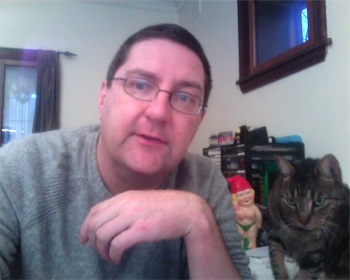It was Oscar Wilde or G B Shaw or — oh, somebody interesting — who, when accused of shocking people, replied to the effect that people should be shocked a good deal more often. Or offended. Anyway, I can’t find the right quote so here’s a different one.
I never travel without my diary. One should always have something sensational to read in the train.
That’s Wilde.
Yesterday we ruffled a client’s feathers. We were invited to tender for a web development project. Our response was, in essence, “Yeah we’re interested — but not if you’re going to do it that way. We don’t think that’ll work because [reasons]. We strongly recommend doing it [some other way]. Before we go any further, is it cool for us to tender that way, knowing that’s not what you asked for? Oh, and here’s the keys to our intranet, so you can see the dialog which led to this conclusion.”
Bang!
Someone’s worldview was gunned down ruthlessly! Politely, but we did use phrases like “high-risk death march”.
Now I should say that one of us worked with this client for almost a decade and the other has worked with them on two projects in the last year. So our comments were based on some knowledge of the organisation and its needs as well as our own professional opinions. Nevertheless, what we said was shocking.
I’ve always wondered why clear, direct communication is so rare in business. People seem almost afraid to say what they mean. “Don’t upset the client!” So a recommendation like “Process A is dangerous and you should change that immediately or risk almost certain failure” becomes a mealy-mouthed “Is everyone happy with the assumptions relating to Process A?”
All urgency is drained away. The project continues flying serenely towards the looming mountain.
But don’t upset the client.
If your recommendation is for major change, when do you broach the subject? Sign up to the “wrong” concept of the project and then try to change it? Leave it until people have spent more time going down the wrong path, and the deadline is closer? No, something so important should be communicated as soon as possible.
Organisations aren’t used to people speaking quite so directly. When it happens, it’s like a splash of iced water into the face. And sometimes, that splash into alertness is precisely what’s needed.

